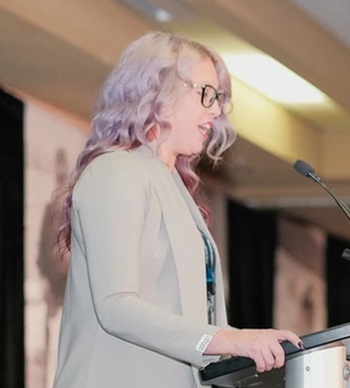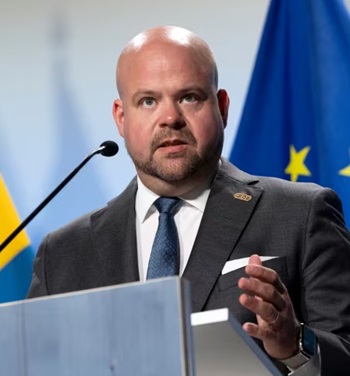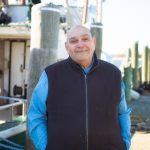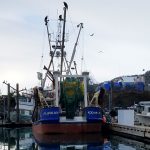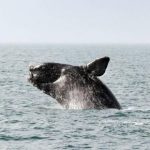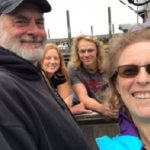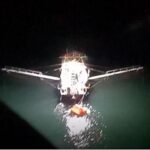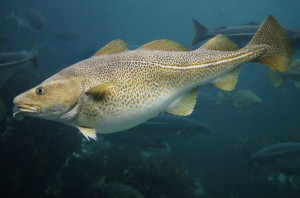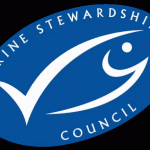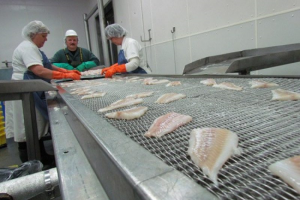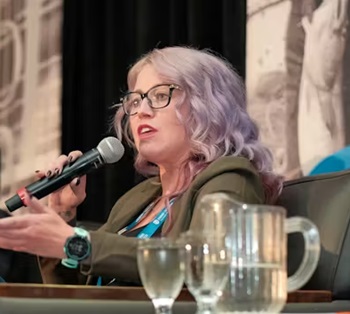 After two seasons of navigating turbulent waters, there is a sense of hope that the Newfoundland and Labrador fishery can finally sail into calmer conditions in April 2024. There was certainly no shortage of conflict on many fronts in 2024, despite efforts to get past some of the tensions that plagued the 2023 season. The provincial government had to step in and help resolve a tie-up by snow crab harvesters in the spring of 2023 that led to a six-week delay to the traditional start of the fishing season. The government formed a committee tasked with finding a better way to settle snow crab pricing, but even its recommendations failed to prevent another disagreement that led to another delayed start in April 2024. more, >>CLICK TO READ<< 09:01
After two seasons of navigating turbulent waters, there is a sense of hope that the Newfoundland and Labrador fishery can finally sail into calmer conditions in April 2024. There was certainly no shortage of conflict on many fronts in 2024, despite efforts to get past some of the tensions that plagued the 2023 season. The provincial government had to step in and help resolve a tie-up by snow crab harvesters in the spring of 2023 that led to a six-week delay to the traditional start of the fishing season. The government formed a committee tasked with finding a better way to settle snow crab pricing, but even its recommendations failed to prevent another disagreement that led to another delayed start in April 2024. more, >>CLICK TO READ<< 09:01
Tag Archives: Newfoundland and Labrador
From fisherman to mayor, and 20 Questions
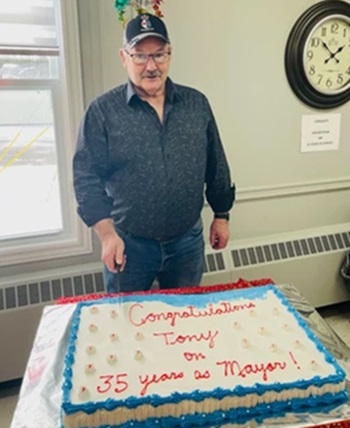 This year, Mayor Tony Ryan of Port Saunders is celebrating 35 years in the big chair of the Northern Peninsula town. As a fisherman by trade, Ryan had never anticipated that he would have ended up running in a mayoral election. “I’ve been (a fisherman) all of my life,” he said. “I’ve been at fishing for 50 years, in the mobile sector, the shrimp fleet. “We had our own boat, and we fished a lot of shrimp. I’m still at it.” It wasn’t until the previous mayor came to Ryan and encouraged him, that he decided to run. He added that being the chair of the fishermen’s committee prior to becoming mayor helped him to enter the position with a decent understanding of how an organization is run. However, there was still a learning curve. “You have to learn as you go,” he said. Becoming mayor is one thing, staying in the position for 35 years is another. more, >>CLICK TO READ<< 15:59
This year, Mayor Tony Ryan of Port Saunders is celebrating 35 years in the big chair of the Northern Peninsula town. As a fisherman by trade, Ryan had never anticipated that he would have ended up running in a mayoral election. “I’ve been (a fisherman) all of my life,” he said. “I’ve been at fishing for 50 years, in the mobile sector, the shrimp fleet. “We had our own boat, and we fished a lot of shrimp. I’m still at it.” It wasn’t until the previous mayor came to Ryan and encouraged him, that he decided to run. He added that being the chair of the fishermen’s committee prior to becoming mayor helped him to enter the position with a decent understanding of how an organization is run. However, there was still a learning curve. “You have to learn as you go,” he said. Becoming mayor is one thing, staying in the position for 35 years is another. more, >>CLICK TO READ<< 15:59
Newfoundland towns light up harbours to honour fishers and pray for their safety
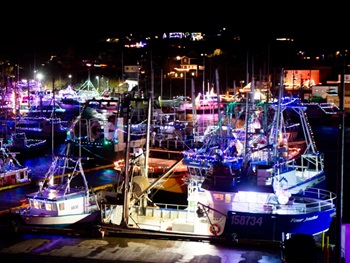 On a twinkling wharf in a small Newfoundland town, a crowd of about 100 people stopped singing and chatting on Friday night to bow their heads in a moment of silence for local fish harvesters. Now in its 26th year, the boat lighting in Port de Grave, N.L., draws visitors from all over the province, but organizers have kept the town’s fishers at the heart of the ceremony. Port de Grave’s event began with a single fisherman, Eric Lear, deciding to light up his boat on Christmas. It has since grown and now requires volunteers to direct cars from out of town into designated parking areas. more, >>CLICK TO READ<< 09:10
On a twinkling wharf in a small Newfoundland town, a crowd of about 100 people stopped singing and chatting on Friday night to bow their heads in a moment of silence for local fish harvesters. Now in its 26th year, the boat lighting in Port de Grave, N.L., draws visitors from all over the province, but organizers have kept the town’s fishers at the heart of the ceremony. Port de Grave’s event began with a single fisherman, Eric Lear, deciding to light up his boat on Christmas. It has since grown and now requires volunteers to direct cars from out of town into designated parking areas. more, >>CLICK TO READ<< 09:10
‘A lot of anxiety’: N.L. seafood industry will see big hit if Trump follows through with tariffs
 President-elect Donald Trump’s 25 per cent tariff threat is worrying people in Newfoundland and Labrador’s seafood industry. More than 60 per cent of the province’s seafood is sold in the United States. “There’s certainly a lot of anxiety right now in the seafood industry, and I’m no exception,” said Labrador Gem Seafoods’ president Danny Dumaresque in an interview with The Telegram on Wednesday, Nov. 27. Trump said in a social media post Monday night that on his first day in office, he would impose the tariffs until Canada and Mexico stop illegal border crossings and prevent drugs such as fentanyl from entering the U.S. “Both Mexico and Canada have the absolute right and power to easily solve this long simmering problem. We hereby demand that they use this power, and until such time that they do, it is time for them to pay a very big price!” Trump wrote on his social media platform Truth Social. more, >>CLICK TO READ<< 07:57
President-elect Donald Trump’s 25 per cent tariff threat is worrying people in Newfoundland and Labrador’s seafood industry. More than 60 per cent of the province’s seafood is sold in the United States. “There’s certainly a lot of anxiety right now in the seafood industry, and I’m no exception,” said Labrador Gem Seafoods’ president Danny Dumaresque in an interview with The Telegram on Wednesday, Nov. 27. Trump said in a social media post Monday night that on his first day in office, he would impose the tariffs until Canada and Mexico stop illegal border crossings and prevent drugs such as fentanyl from entering the U.S. “Both Mexico and Canada have the absolute right and power to easily solve this long simmering problem. We hereby demand that they use this power, and until such time that they do, it is time for them to pay a very big price!” Trump wrote on his social media platform Truth Social. more, >>CLICK TO READ<< 07:57
Going after the big fish: New union president vows to take on whoever stands in the way of Newfoundland and Labrador fishery
 Vibes of positive energy permeated FFAW-Unifor’s recent annual convention in Gander, and the union’s new president hopes to carry that momentum forward into what she envisions will be a new era for the fishery in Newfoundland and Labrador. Dwan Street is the first woman to ever hold the presidency of the union that represents the province’s inshore fish harvesters and plant workers, and she’s ready to roll up her sleeves and get to work now that the convention celebration is over. She’s not interested in discrediting any past executives, but Street said it’s clear there needs to be fresh, new approaches to helping make life better for harvesters and plant workers. more, >>CLICK TO READ<< 08:52
Vibes of positive energy permeated FFAW-Unifor’s recent annual convention in Gander, and the union’s new president hopes to carry that momentum forward into what she envisions will be a new era for the fishery in Newfoundland and Labrador. Dwan Street is the first woman to ever hold the presidency of the union that represents the province’s inshore fish harvesters and plant workers, and she’s ready to roll up her sleeves and get to work now that the convention celebration is over. She’s not interested in discrediting any past executives, but Street said it’s clear there needs to be fresh, new approaches to helping make life better for harvesters and plant workers. more, >>CLICK TO READ<< 08:52
Newfoundland and Labrador recorded its highest lobster landings ever this past season
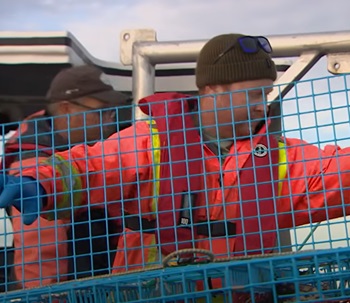 And so, this past spring, when I was hearing so much about the abundance of lobsters in our waters, I wanted to find out what was going on. I called around to several harvesters in various parts of the province to find out about their catch rates. The thing is, when lobsters are plentiful, lobster fishermen can be a tight-lipped bunch. I knew after a few phone calls, it would be hard to get anyone to go on camera for a Land & Sea show to brag about their bounty. And that was confirmed for me by Fortune Bay fisherman Alfred Fitzpatrick, who fishes out of Garnish on the Burin Peninsula. “Fellows will tell you they poached a moose before they tell you they caught a lobster. If you hauled 200 pots and you got 10 lobsters, and your brother asked you, you’d say, ‘Boy, I got five,'” explained Fitzpatrick. Video, more, >>CLICK TO READ<< 08:14
And so, this past spring, when I was hearing so much about the abundance of lobsters in our waters, I wanted to find out what was going on. I called around to several harvesters in various parts of the province to find out about their catch rates. The thing is, when lobsters are plentiful, lobster fishermen can be a tight-lipped bunch. I knew after a few phone calls, it would be hard to get anyone to go on camera for a Land & Sea show to brag about their bounty. And that was confirmed for me by Fortune Bay fisherman Alfred Fitzpatrick, who fishes out of Garnish on the Burin Peninsula. “Fellows will tell you they poached a moose before they tell you they caught a lobster. If you hauled 200 pots and you got 10 lobsters, and your brother asked you, you’d say, ‘Boy, I got five,'” explained Fitzpatrick. Video, more, >>CLICK TO READ<< 08:14
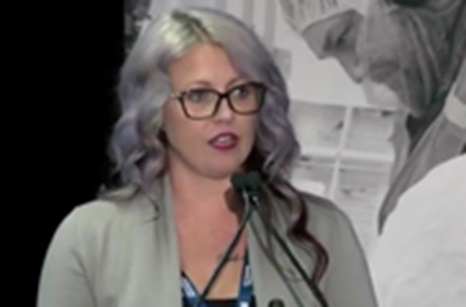
Dwan Street says FFAW won’t shy away from a fight as first woman to lead union takes reins
In a fiery introduction speech in front of members of the Fish, Food and Allied Workers union, new leader Dwan Street said Tuesday her presidency also marks the start of a new era in the Newfoundland and Labrador fishery. “One where our voices will become louder. Where we are not afraid to rattle cages. And from what I’m hearing, there are a few rattled right now,” Street said in Gander. Street, originally from Spillar’s Cove on the Bonavista Peninsula, was elected in July as the first woman to lead the union that represents about 15,000 people in Newfoundland and Labrador. She replaces former president Greg Pretty and takes the leadership as a time when the FFAW — a force in Newfoundland and Labrador labour, industry and politics for more than five decades — has been accused of not being tough enough in speaking up for members’ interests. High-profile protests earlier this year, for instance, were organized from outside the union’s leadership. Video, more >>CLICK TO READ<< 11:20
FFAW says it wants to reclaim its right to strike — but only over snow crab
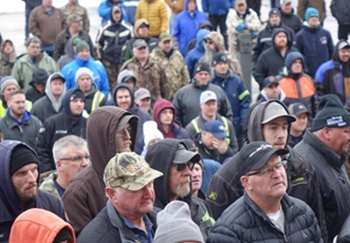 The Newfoundland and Labrador government is opening the door for seafood harvesters in the province to reclaim their right to strike, but the harvesters’ union is signalling it only wants that right for a single species — a proposal that the fisheries minister says likely isn’t legal. Minister Gerry Byrne announced several proposed changes to fishing industry regulations Monday in what he billed as an effort to advance free enterprise. Those proposals included a green light from government to return to strikes and lockout processes when collective bargaining fails, and a move away from the final-offer selection model implemented in Newfoundland and Labrador two decades ago. Under the current model, the Fish, Food and Allied Workers union and Association of Seafood Producers both make offers about pricing and an independent arbitrator chooses between those offers, thus avoiding lockouts and strikes. more, >>CLICK TO READ<< 15:23
The Newfoundland and Labrador government is opening the door for seafood harvesters in the province to reclaim their right to strike, but the harvesters’ union is signalling it only wants that right for a single species — a proposal that the fisheries minister says likely isn’t legal. Minister Gerry Byrne announced several proposed changes to fishing industry regulations Monday in what he billed as an effort to advance free enterprise. Those proposals included a green light from government to return to strikes and lockout processes when collective bargaining fails, and a move away from the final-offer selection model implemented in Newfoundland and Labrador two decades ago. Under the current model, the Fish, Food and Allied Workers union and Association of Seafood Producers both make offers about pricing and an independent arbitrator chooses between those offers, thus avoiding lockouts and strikes. more, >>CLICK TO READ<< 15:23
NEW EXECUTIVE BOARD SWEARING IN TUES NOV 19
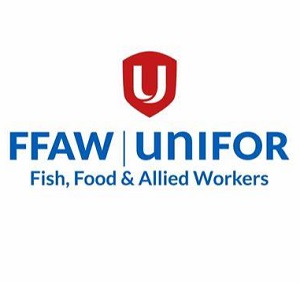 Please be advised that FFAW-Unifor is hosting its triennial Constitutional Convention next week at Quality Hotel and Suites in Gander. 160 delegates are registered to attend, representing all sectors of the Union. Monday, November 18 at 1:15PM: INSHORE PANEL Safety At Sea: Bringing Harvesters Home Safely with Craig Parsons (NL-FHSA), Terry Billard (Cheryl &Diane), Eugene Carter (Elite Navigator ‘Lucky 7’), Mark Gould (Coast Guard SAR) and MOD Sherry Glynn (FFAW) (SALON A/B). Tuesday, November 19 at 4:15PM: Swearing in of the New Executive Board and New President Speech more, >>CLICK TO READ<< 12:25
Please be advised that FFAW-Unifor is hosting its triennial Constitutional Convention next week at Quality Hotel and Suites in Gander. 160 delegates are registered to attend, representing all sectors of the Union. Monday, November 18 at 1:15PM: INSHORE PANEL Safety At Sea: Bringing Harvesters Home Safely with Craig Parsons (NL-FHSA), Terry Billard (Cheryl &Diane), Eugene Carter (Elite Navigator ‘Lucky 7’), Mark Gould (Coast Guard SAR) and MOD Sherry Glynn (FFAW) (SALON A/B). Tuesday, November 19 at 4:15PM: Swearing in of the New Executive Board and New President Speech more, >>CLICK TO READ<< 12:25
Why Canada’s decision to lift a ban on cod fishing in Newfoundland after 32 years is so controversial – Podcast
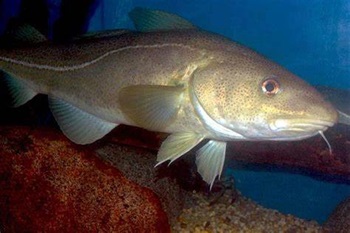 For generations, cod fishing was a way of life in Newfoundland and Labrador, the easternmost province in Canada. But in 1992, after cod stocks in the north Atlantic plummeted, the federal government imposed a moratorium on cod fishing. It was to last for 32 years until it was lifted in June 2024. Fishing has been the backbone of the economy for centuries, and so when the Canadian government imposed a cod moratorium in 1992 it had a huge impact, with an estimated 30,000 people in Newfoundland and Labrador out of work overnight. Some cod fishing was permitted in inshore waters from the late 1990s in boats less than 20 metres long, but all commercial offshore trawler fishing was prohibited. Links, more, >>CLICK TO READ<< 11:48
For generations, cod fishing was a way of life in Newfoundland and Labrador, the easternmost province in Canada. But in 1992, after cod stocks in the north Atlantic plummeted, the federal government imposed a moratorium on cod fishing. It was to last for 32 years until it was lifted in June 2024. Fishing has been the backbone of the economy for centuries, and so when the Canadian government imposed a cod moratorium in 1992 it had a huge impact, with an estimated 30,000 people in Newfoundland and Labrador out of work overnight. Some cod fishing was permitted in inshore waters from the late 1990s in boats less than 20 metres long, but all commercial offshore trawler fishing was prohibited. Links, more, >>CLICK TO READ<< 11:48
3Ps Stock Assessment Update Highlights Need to Ban Offshore Draggers and Address Seal Predation
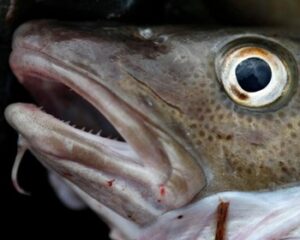 11/5/2024 – Today’s technical briefing by the Department of Fisheries and Oceans (DFO) on the 3Ps cod stock assessment delivered news that the south coast species has not experienced much growth in recent years, leaving harvesters concerned for the stock’s future and the impact the offshore dragger fishery is having on the stock’s recovery. FFAW is once again reiterating the need to ban factory draggers from all cod species in Newfoundland and Labrador, citing the continued and lasting damaged caused by draggers fishing on pre-spawning aggregations. more, >>CLICK TO READ<< 10:57
11/5/2024 – Today’s technical briefing by the Department of Fisheries and Oceans (DFO) on the 3Ps cod stock assessment delivered news that the south coast species has not experienced much growth in recent years, leaving harvesters concerned for the stock’s future and the impact the offshore dragger fishery is having on the stock’s recovery. FFAW is once again reiterating the need to ban factory draggers from all cod species in Newfoundland and Labrador, citing the continued and lasting damaged caused by draggers fishing on pre-spawning aggregations. more, >>CLICK TO READ<< 10:57
Redfish harvesters call on Ottawa to reverse decision requiring observers for each trip
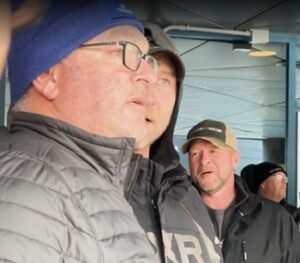 Fish harvesters on the west coast of Newfoundland are calling on Ottawa to overturn a decision they say could keep them from fishing for redfish and brought their concerns to the Department of Fisheries and Oceans office in Corner Brook on Monday. Dwan Street, president-elect of the Fish, Food and Allied Workers union, said harvesters face the requirement of an at-sea observer, which ensures compliance with fishery guidelines on every trip they take. Observers must also be paid for by harvesters, with DFO saying those who benefit from the resource should assist in paying for its management. A crowd of around 60 people took calls for change to the DFO office in Corner Brook Monday, which was closed before protestors arrived. For fishermen like Conway Caines, the issue boils down to two main factors: Not enough observers are available, and it’s another added expense crews might not be able to handle. Photos, Video, more, >>CLICK TO READ<< 18:36
Fish harvesters on the west coast of Newfoundland are calling on Ottawa to overturn a decision they say could keep them from fishing for redfish and brought their concerns to the Department of Fisheries and Oceans office in Corner Brook on Monday. Dwan Street, president-elect of the Fish, Food and Allied Workers union, said harvesters face the requirement of an at-sea observer, which ensures compliance with fishery guidelines on every trip they take. Observers must also be paid for by harvesters, with DFO saying those who benefit from the resource should assist in paying for its management. A crowd of around 60 people took calls for change to the DFO office in Corner Brook Monday, which was closed before protestors arrived. For fishermen like Conway Caines, the issue boils down to two main factors: Not enough observers are available, and it’s another added expense crews might not be able to handle. Photos, Video, more, >>CLICK TO READ<< 18:36
Opposition to seal ban grows within EU, where hunters alliance is optimistic rules will change
A group representing hunters in the Nordic countries says it’s more optimistic than ever that the European Union will lift a longtime ban on trading seal products. The regulation, implemented in 2009 after a highly successful campaign from animal rights groups, deprived Canadian sealers of their primary market. “Our hope and expectation is that the ban will be reversed, and that trade can be possible again,” said Johan Svalby, senior advisor for international affairs at the Nordic Hunters Alliance. Since beginning its review of the current regulations, thousands of individuals and organizations have participated in consultations, including the Canadian, Newfoundland and Labrador, Nunavut and Northwest Territories governments, which argued for removing the ban. more, >>CLICK TO READ<< 07:27
Fisheries Minister Rejects Opposition’s Approach to Processing Controversy, Hints at ‘Significant’ Regulatory Changes
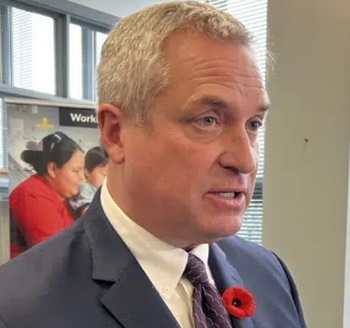 Provincial Fisheries Minister Gerry Bryne is hinting that some “significant changes” could be coming in relation to fish processors who run afoul of the regulatory process. Royal Greenland, which owns Quin-Sea, is currently before the Labour Relations Board after the Association of Seafood Producers filed an urgent application against the company. According to the FFAW, Royal Greenland failed to provide sales data on 5-8 ounce sections of crab delivered to Boston as required for a third-party review of 2024 snow crab sales. more, >>CLICK TO READ<< 07:25
Provincial Fisheries Minister Gerry Bryne is hinting that some “significant changes” could be coming in relation to fish processors who run afoul of the regulatory process. Royal Greenland, which owns Quin-Sea, is currently before the Labour Relations Board after the Association of Seafood Producers filed an urgent application against the company. According to the FFAW, Royal Greenland failed to provide sales data on 5-8 ounce sections of crab delivered to Boston as required for a third-party review of 2024 snow crab sales. more, >>CLICK TO READ<< 07:25
Baffin Fisheries’ new ship stranded in Athens after engine fails on maiden voyage
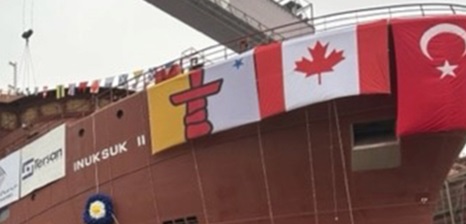 Crew members aboard Baffin Fisheries’ Inuksuk II have spent more than 14 days docked in Athens, Greece after an engine failure stalled the fishing vessel on its first voyage. “We are very disappointed. This was entirely unexpected,” Baffin Fisheries CEO Chris Flanagan said in an interview. “We knew there would be some break-in period and glitches with a brand-new vessel. There always are and that’s expected. But we didn’t expect anything like this to happen.” more, >>CLICK TO READ<< 19:12
Crew members aboard Baffin Fisheries’ Inuksuk II have spent more than 14 days docked in Athens, Greece after an engine failure stalled the fishing vessel on its first voyage. “We are very disappointed. This was entirely unexpected,” Baffin Fisheries CEO Chris Flanagan said in an interview. “We knew there would be some break-in period and glitches with a brand-new vessel. There always are and that’s expected. But we didn’t expect anything like this to happen.” more, >>CLICK TO READ<< 19:12

The fatal truth about commercial fishing
A note from the authors: Dear readers, we have wanted to cover this story for a long time. Given the fishing tragedies this province has endured, we acknowledge this is a difficult subject. This reporting honours those lost at sea, doing what they loved most: fishing. We recognize the collective grief of families, communities and the entire province. We hope this work illuminates what’s going wrong on the water and helps bring more fish harvesters home safely. Inshore harvesters dealing with trauma after incidents like the ones we describe can access PTSD coverage through workers’ compensation (WorkplaceNL). For anyone else, 811 can connect you with mental health supports in your community.
“My god, what are you doing to me?” says Brenda Gould, remembering the words she shouted into the sky that fateful day in 1989. The Port au Choix woman had just learned that her 22-year-old son Brendan, known as Ben, drowned while fishing off the coast of the Northern Peninsula. It wasn’t the first time tragedy knocked at Gould’s door. Eleven years earlier, in 1978, her husband Gabriel, 35, also drowned while fishing. Photos, Video, more, >>CLICK TO READ<< 17:41
Federal court denies FFAW request for injunction against reopening of northern cod fishery
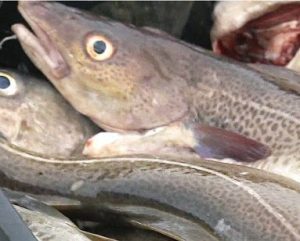 Federal court denies FFAW request for injunction against reopening of northern cod fishery. In July 2024, the FFAW requested a judicial review of the federal fisheries departments’ decision to reopen the northern cod fishery with a total allowable catch of 18,000 tonnes. Later, the FFAW requested an injunction against federal Fisheries Minister Diane Lebouthillier’s decision, made in June, to allocate 18,000 tonnes of cod for Canadian harvesters, and 1,080 tonnes for the offshore sector. Yesterday, the court denied the request for an injunction, stating that FFAW failed to demonstrate that irreparable harm. more, >>CLICK TO READ<< 11:25
Federal court denies FFAW request for injunction against reopening of northern cod fishery. In July 2024, the FFAW requested a judicial review of the federal fisheries departments’ decision to reopen the northern cod fishery with a total allowable catch of 18,000 tonnes. Later, the FFAW requested an injunction against federal Fisheries Minister Diane Lebouthillier’s decision, made in June, to allocate 18,000 tonnes of cod for Canadian harvesters, and 1,080 tonnes for the offshore sector. Yesterday, the court denied the request for an injunction, stating that FFAW failed to demonstrate that irreparable harm. more, >>CLICK TO READ<< 11:25
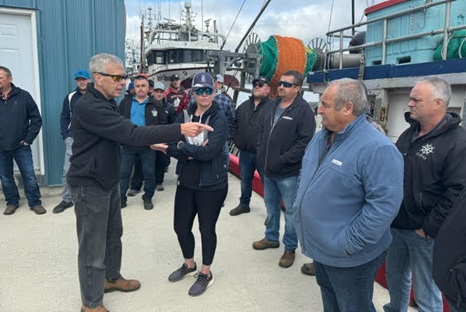
Call for Changes to Gulf of St. Lawrence Redfish Fishery Management, Inshore Fleet Demands Immediate Action
The 4R inshore fleet is calling on the Department of Fisheries and Oceans (DFO) to implement immediate changes to the management of the Gulf of St. Lawrence Unit 1 Redfish Fishery. Dozens of harvesters rallied outside the Barry Group plant in Curling today as members look to the federal government for urgent changes to access the small, time sensitive fishery. “DFO has not established harvest control rules that allow for a sustainable fishery for the 4R fleet, despite the critical importance of this resource to local communities,” explains Jason Spingle, FFAW-Unifor Secretary-Treasurer. “Minister Lebouthillier’s decision to allocate the majority of the fishery to the corporate dragger fleet has left the inshore fleet struggling to survive, and current rules mean they cannot access the small bit of quota do they have,” Spingle says. more, >>CLICK TO READ<< 14:09
Now or never
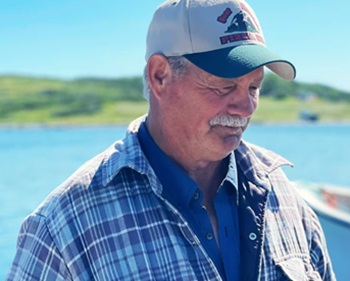 Fishermen in Newfoundland and Labrador may have acquired a reputation of getting riled up and rowdy when things aren’t going their way: crashing news conferences, for instance, or blocking the doors to Confederation Building in St. John’s. Carl Hedderson and the handful of harvesters left on the northern tip of Newfoundland say they are not those kinds of fishermen. “Nobody hears us because I guess we’re not complaining enough,” says Hedderson. Since 2022, Carl Hedderson has been quietly but diligently advocating to the federal government to issue new lobster permits so he and the other fishermen in the area can both assess and access the lobster stock and save a way of life that Hedderson says will die with his generation. “That’s the only thing that’s going to save us,” said Hedderson. photos, more, >>CLICK TO READ<< 07:01
Fishermen in Newfoundland and Labrador may have acquired a reputation of getting riled up and rowdy when things aren’t going their way: crashing news conferences, for instance, or blocking the doors to Confederation Building in St. John’s. Carl Hedderson and the handful of harvesters left on the northern tip of Newfoundland say they are not those kinds of fishermen. “Nobody hears us because I guess we’re not complaining enough,” says Hedderson. Since 2022, Carl Hedderson has been quietly but diligently advocating to the federal government to issue new lobster permits so he and the other fishermen in the area can both assess and access the lobster stock and save a way of life that Hedderson says will die with his generation. “That’s the only thing that’s going to save us,” said Hedderson. photos, more, >>CLICK TO READ<< 07:01
Ottawa shirked own guidelines when it reopened commercial cod fishery, say scientists
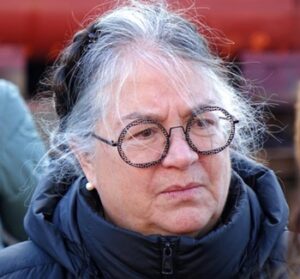 Fisheries scientists say the federal government ignored its own guidelines when it hiked cod quotas off the northern and eastern coasts of Newfoundland and Labrador last June. The scientists, some of whom worked for Fisheries and Oceans Canada for decades, say they’re struggling to understand the decision to reopen the commercial Northern cod fishery. “I was baffled when I heard the news”, said Noel Cadigan, a long-time DFO scientist who now works at Memorial University’s Marine Institute. “And that hasn’t changed.” A May 6 briefing note obtained by CBC/Radio-Canada shows DFO recommended against reopening the fishery to offshore vessels and increasing quotas. But it also assured Federal Fisheries Minister Diane Lebouthillier that lifting the moratorium and hiking the total allowable catch, as all six Liberal MPs from Newfoundland and Labrador were pushing her to do, would nevertheless align with the Fisheries Act and its rules on stock management. more, >>CLICK TO READ<< 11:15
Fisheries scientists say the federal government ignored its own guidelines when it hiked cod quotas off the northern and eastern coasts of Newfoundland and Labrador last June. The scientists, some of whom worked for Fisheries and Oceans Canada for decades, say they’re struggling to understand the decision to reopen the commercial Northern cod fishery. “I was baffled when I heard the news”, said Noel Cadigan, a long-time DFO scientist who now works at Memorial University’s Marine Institute. “And that hasn’t changed.” A May 6 briefing note obtained by CBC/Radio-Canada shows DFO recommended against reopening the fishery to offshore vessels and increasing quotas. But it also assured Federal Fisheries Minister Diane Lebouthillier that lifting the moratorium and hiking the total allowable catch, as all six Liberal MPs from Newfoundland and Labrador were pushing her to do, would nevertheless align with the Fisheries Act and its rules on stock management. more, >>CLICK TO READ<< 11:15
Feds fund offshore wind study hoping to boost market in Atlantic Canada
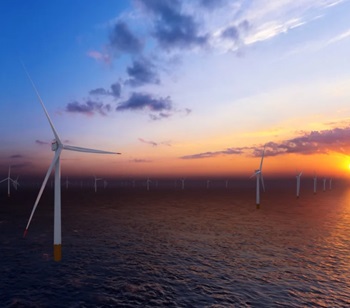 Federal funding for a pioneering offshore wind power grid study in the Canadian Maritimes should help draw big-hitting developers to the region’s first project auction next year. But commercialization of the market remains on the far horizon, says a leading industry analyst. Ottawa earlier this week awarded $6 million to Net Zero Atlantic, a low-carbon research and development hub in Nova Scotia, for the Atlantic Canada Offshore Wind Integration and Transmission Study, which aims to show how future offshore wind farms could export power to the onshore electricity network. While $6 million of the funding to Net Zero Atlantic will go toward the grid study, a further $3.25 million will be dedicated to technologies associated with fishing vessels and ferry fleets, agriculture, carbon capture, hydrogen and energy storage. more, >>CLICK TO READ<< 07:38
Federal funding for a pioneering offshore wind power grid study in the Canadian Maritimes should help draw big-hitting developers to the region’s first project auction next year. But commercialization of the market remains on the far horizon, says a leading industry analyst. Ottawa earlier this week awarded $6 million to Net Zero Atlantic, a low-carbon research and development hub in Nova Scotia, for the Atlantic Canada Offshore Wind Integration and Transmission Study, which aims to show how future offshore wind farms could export power to the onshore electricity network. While $6 million of the funding to Net Zero Atlantic will go toward the grid study, a further $3.25 million will be dedicated to technologies associated with fishing vessels and ferry fleets, agriculture, carbon capture, hydrogen and energy storage. more, >>CLICK TO READ<< 07:38
Federal Fisheries Minister Chose to Re-Open Northern Cod Commercial Fishery Against Recommendation for Stewardship Fishery
 The Union representing fish harvesters in Newfoundland and Labrador have received more documents submitted by the Government of Canada in connection with the federal injunction filed by FFAW-Unifor in July, proving Minister Lebouthillier’s blatant negligence in ending the moratorium on Northern cod. These recent documents show that, despite insistence from NL Liberal MPs and DFO officials, Minister Diane Lebouthillier was presented with three options to decide a management approach for Northern cod in the 2024 season. In a document issued by the office of Deputy Minister Annette Gibbons on May 6, 2024, the recommended option from DFO bureaucrats and scientists was to maintain a stewardship fishery and maximum allowable harvest (MAH) level of 13,000t, reflecting a more cautious approach that would potentially result in less dramatic stock declines in the future and could help to avoid challenges in the management of the stock in the longer term. more, >>CLICK TO READ<< 08:57
The Union representing fish harvesters in Newfoundland and Labrador have received more documents submitted by the Government of Canada in connection with the federal injunction filed by FFAW-Unifor in July, proving Minister Lebouthillier’s blatant negligence in ending the moratorium on Northern cod. These recent documents show that, despite insistence from NL Liberal MPs and DFO officials, Minister Diane Lebouthillier was presented with three options to decide a management approach for Northern cod in the 2024 season. In a document issued by the office of Deputy Minister Annette Gibbons on May 6, 2024, the recommended option from DFO bureaucrats and scientists was to maintain a stewardship fishery and maximum allowable harvest (MAH) level of 13,000t, reflecting a more cautious approach that would potentially result in less dramatic stock declines in the future and could help to avoid challenges in the management of the stock in the longer term. more, >>CLICK TO READ<< 08:57Will Reviving the Cod Industry Doom It Yet Again?
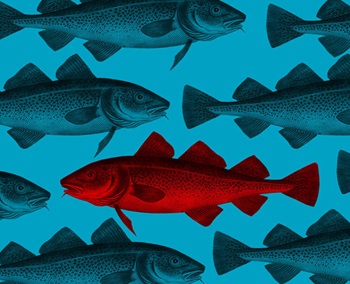 It’s been thirty-two years since the federal government first closed the northern cod fishery. It was historically the colony’s main trade for centuries, but that changed, nearly overnight, in 1992, after a press conference at the downtown Radisson Hotel in St. John’s, when then federal fisheries and oceans minister John Crosbie announced a complete halt. Fishery workers would be compensated for ten weeks, at the rate of $225 a week, and then go on employment insurance. The meagre amounts were seen as an insult to the workers whose labour was responsible for a $700 million per year industry (almost $1.35 billion in 2024 terms)—and who recognized, in the mass layoff, the spectre of their culture on the brink of extinction. Of course, fishery workers weren’t the only people who would suffer from the shuttering. With fishing boats now idle, fuel sales dropped. Schools amalgamated across communities as young families moved elsewhere and school districts struggled to fill classrooms. Those of us who lived through it will remember how local businesses offering small luxuries—restaurants and cafeterias, hair salons, cinemas—all felt the sting of a laid-off workforce. more, >>CLICK TO READ<< 07:48
It’s been thirty-two years since the federal government first closed the northern cod fishery. It was historically the colony’s main trade for centuries, but that changed, nearly overnight, in 1992, after a press conference at the downtown Radisson Hotel in St. John’s, when then federal fisheries and oceans minister John Crosbie announced a complete halt. Fishery workers would be compensated for ten weeks, at the rate of $225 a week, and then go on employment insurance. The meagre amounts were seen as an insult to the workers whose labour was responsible for a $700 million per year industry (almost $1.35 billion in 2024 terms)—and who recognized, in the mass layoff, the spectre of their culture on the brink of extinction. Of course, fishery workers weren’t the only people who would suffer from the shuttering. With fishing boats now idle, fuel sales dropped. Schools amalgamated across communities as young families moved elsewhere and school districts struggled to fill classrooms. Those of us who lived through it will remember how local businesses offering small luxuries—restaurants and cafeterias, hair salons, cinemas—all felt the sting of a laid-off workforce. more, >>CLICK TO READ<< 07:48
Shipping up to Boston: N.L. opening trade office in Massachusetts
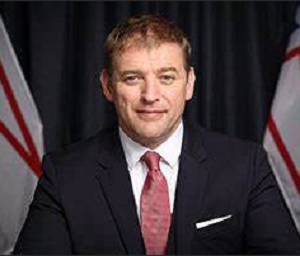 Newfoundland and Labrador is dropping anchor and opening shop in Boston. On a trade mission to the Massachusetts state capital this week, Premier Andrew Furey announced the province would be opening its first international trade office in the city. Furey said the province and Boston have connections in the seafood and marine industries, and across the biotechnology and energy sectors. “It’s important to have a presence in the United States right now,” he said. Furey said there are companies in Boston involved in wind projects and biotechnology that are looking for partners, research and product development. With Boston’s proximity to Washington, D.C., and New York, Furey said it made sense to open an office across the border. more, >>CLICK TO READ<< 10:03
Newfoundland and Labrador is dropping anchor and opening shop in Boston. On a trade mission to the Massachusetts state capital this week, Premier Andrew Furey announced the province would be opening its first international trade office in the city. Furey said the province and Boston have connections in the seafood and marine industries, and across the biotechnology and energy sectors. “It’s important to have a presence in the United States right now,” he said. Furey said there are companies in Boston involved in wind projects and biotechnology that are looking for partners, research and product development. With Boston’s proximity to Washington, D.C., and New York, Furey said it made sense to open an office across the border. more, >>CLICK TO READ<< 10:03
Lebouthillier Ignored Scientific Advice on Reopening Cod Fishery
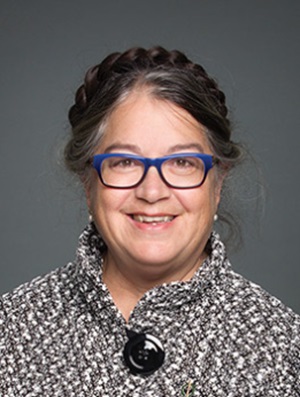 Federal Fisheries Minister Diane Lebouthillier faced criticism for disregarding advice from the Department of Fisheries and Oceans (DFO) when she reopened the commercial cod fishery off Newfoundland and Labrador earlier this year, a decision largely influenced by political considerations. Patrick Butler of Radio Canada reports that a DFO briefing note from 09 May 2024 uncovered by reveals that the department recommended maintaining the longstanding moratorium on northern cod, citing scientific evidence of the stock’s vulnerability. However, political advisors within the minister’s office advocated for reopening the fishery and increasing cod quotas, viewing it as a “political victory.” Senior policy advisor Paul Carrigan expressed concerns from DFO staff about the risk of stock decline due to higher quotas and the return of offshore vessels. The department had recommended keeping the total allowable catch at 13,000 tonnes, the same level as in 2022 and 2023, while maintaining a limited stewardship fishery solely for inshore harvesters. more, >>CLICK TO READ<< 12:05
Federal Fisheries Minister Diane Lebouthillier faced criticism for disregarding advice from the Department of Fisheries and Oceans (DFO) when she reopened the commercial cod fishery off Newfoundland and Labrador earlier this year, a decision largely influenced by political considerations. Patrick Butler of Radio Canada reports that a DFO briefing note from 09 May 2024 uncovered by reveals that the department recommended maintaining the longstanding moratorium on northern cod, citing scientific evidence of the stock’s vulnerability. However, political advisors within the minister’s office advocated for reopening the fishery and increasing cod quotas, viewing it as a “political victory.” Senior policy advisor Paul Carrigan expressed concerns from DFO staff about the risk of stock decline due to higher quotas and the return of offshore vessels. The department had recommended keeping the total allowable catch at 13,000 tonnes, the same level as in 2022 and 2023, while maintaining a limited stewardship fishery solely for inshore harvesters. more, >>CLICK TO READ<< 12:05
Animal Protection Party of Canada calls for the resignation of Canada’s Fisheries Minister
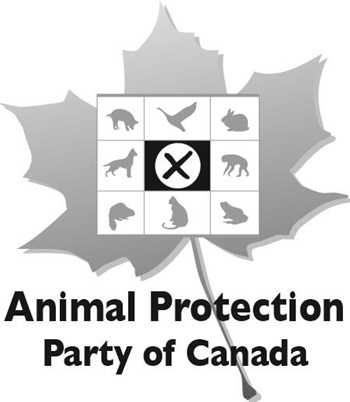 The Animal Protection Party of Canada calls for Prime Minister Trudeau to remove Diane Lebouthillier from her role as Fisheries Minister. “Canadians deserve ministers more committed to integrity and respect for science than political expediency,” says Party Leader, Liz White. White is reacting to a September 10th report by Radio-Canada’s Patrick Butler about a briefing note clearly explaining that staff with the Department of Fisheries recommended that the Minister keep the moratorium on northern cod in order to prevent a further decline in the population of fish. They also recommended that the current quota be maintained and not increased, and that she keep in place the ‘stewardship fishery’ meaning that fishing should be prioritized for inshore and Indigenous fishers and not for offshore and international fleets. more, >>CLICK TO READ<< 07:42
The Animal Protection Party of Canada calls for Prime Minister Trudeau to remove Diane Lebouthillier from her role as Fisheries Minister. “Canadians deserve ministers more committed to integrity and respect for science than political expediency,” says Party Leader, Liz White. White is reacting to a September 10th report by Radio-Canada’s Patrick Butler about a briefing note clearly explaining that staff with the Department of Fisheries recommended that the Minister keep the moratorium on northern cod in order to prevent a further decline in the population of fish. They also recommended that the current quota be maintained and not increased, and that she keep in place the ‘stewardship fishery’ meaning that fishing should be prioritized for inshore and Indigenous fishers and not for offshore and international fleets. more, >>CLICK TO READ<< 07:42
In cod we trust: Newfoundland’s famous fish aims at a comeback, but not everyone’s happy
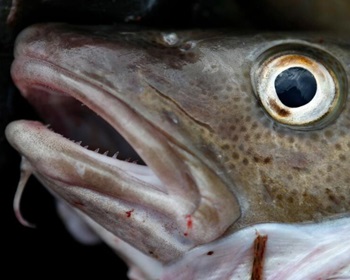 By 1992, the mighty cod had been fished to near oblivion, and the federal government declared a moratorium, indefinitely closing the industry in the hopes that the cod stock could rebuild itself over time. Some 30,000 Newfoundlanders lost their jobs and 10 per cent of the population headed west to Ontario, Alberta and beyond to find work in a mass outmigration the province has never fully recovered from. But if there is one truth in this life, it is that it is hard not to root for a good comeback story. Cod, in theory, was positioned to be such a comeback kid this summer when the federal government in June announced that the moratorium on the commercial cod fishery was being lifted after 32 years. Yet instead of parades, parties and fireworks, the announcement was met with discontent, particularly among small, inshore fish harvesters. That is, the skippers and salty olde sea dogs and their crews, wresting a living from the sea in small, 15-metre boats or less, who claim the end of the moratorium and return of the massive offshore “draggers” to the cod fishery is the beginning of the end for the North Atlantic cod 2.0. photos, more, >>CLICK TO READ<< 09:10
By 1992, the mighty cod had been fished to near oblivion, and the federal government declared a moratorium, indefinitely closing the industry in the hopes that the cod stock could rebuild itself over time. Some 30,000 Newfoundlanders lost their jobs and 10 per cent of the population headed west to Ontario, Alberta and beyond to find work in a mass outmigration the province has never fully recovered from. But if there is one truth in this life, it is that it is hard not to root for a good comeback story. Cod, in theory, was positioned to be such a comeback kid this summer when the federal government in June announced that the moratorium on the commercial cod fishery was being lifted after 32 years. Yet instead of parades, parties and fireworks, the announcement was met with discontent, particularly among small, inshore fish harvesters. That is, the skippers and salty olde sea dogs and their crews, wresting a living from the sea in small, 15-metre boats or less, who claim the end of the moratorium and return of the massive offshore “draggers” to the cod fishery is the beginning of the end for the North Atlantic cod 2.0. photos, more, >>CLICK TO READ<< 09:10
Ottawa still hasn’t learned to choose science over politics in the cod fishery, says Gerry Byrne
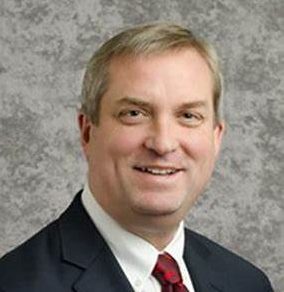 Newfoundland and Labrador’s fisheries minister says he was disturbed to learn federal Fisheries Minister Diane Lebouthillier ignored the advice of staff in reopening the commercial cod fishery. Gerry Byrne said Tuesday the decision to reopen the fishery, announced in June, wasn’t based on industry science. “The view that we saw was very, very disturbing. It is about politics,” Byrne said Tuesday. “We thought we were at a place where politics would be removed from this decision-making process, because it was politics that brought us here to begin with.” Byrne called the findings a gut punch to those working in the industry and the people of Newfoundland and Labrador. more, >>CLICK TO READ<< 07:47
Newfoundland and Labrador’s fisheries minister says he was disturbed to learn federal Fisheries Minister Diane Lebouthillier ignored the advice of staff in reopening the commercial cod fishery. Gerry Byrne said Tuesday the decision to reopen the fishery, announced in June, wasn’t based on industry science. “The view that we saw was very, very disturbing. It is about politics,” Byrne said Tuesday. “We thought we were at a place where politics would be removed from this decision-making process, because it was politics that brought us here to begin with.” Byrne called the findings a gut punch to those working in the industry and the people of Newfoundland and Labrador. more, >>CLICK TO READ<< 07:47






